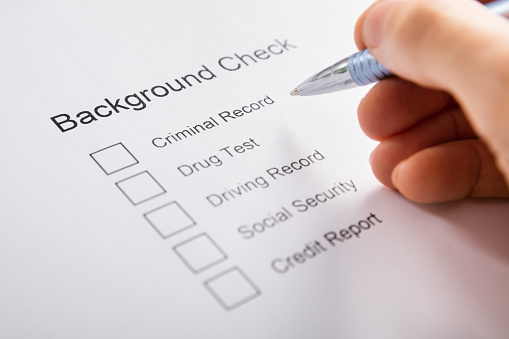The term “background check” sounds mundane until you’re the person who has to conduct it or you’re the person whose background is being checked.
A lot of people believe that a background check is when you call your prospective employee’s old boss and ask if they were cooperative, but that’s only a tiny part of it.
Here’s what to look for when conducting a background check.
1. Work History
Calling your candidate’s former employer is one of the very first things that you need to do. The kind of information that the company might reveal may vary based on their policies, however, if they’re flexible enough, they may be able to answer all the questions that you have. They can also confirm the claims that the applicant has on their resume.
2. Social Media Accounts
Traditionally, one would not check an employee’s social media accounts as a part of their official pre-employment screening. However, since we’re living in the digital age, checking public accounts sounds like a reasonable thing to do.
Despite these profiles’ inaccuracy, an employer could still observe a lot of details that can help them in their decision making. These kinds of accounts could reveal to you who your future worker is and whether this person could have a positive or a negative influence on your team.
3. Educational Records
Your applicant’s school records are another thing that you should look into. These reports can verify whether the employee has attended and finished high school or not. It’s not limited to that though; educational records should contain any kind of degrees or certificates. They can also reveal a lot about the candidate’s skills and proficiency. Based on their educational background, you can decide whether or not that person will be a good fit for the company.
4. Vehicle Registration
This might sound weird, but one of the many things that you should check is the worker’s vehicle registration. This means that you need to look at things like accidents, license status, infractions, revocations, and violations. This might seem like a lot of work, but the specialists from DMVRecords.us.org advise employers to use a trusted online service that can ease this process.
These kinds of services can provide you with a detailed report that contains all the information you need. Also, remember that when it comes to the violation section, you need to look at incidents that have been kept on record for three years or more.
5. Drug Test Results
Of course, one of the things you need to check is the drug test results. This might seem a bit intrusive, but it is an important step to make sure that your employees are reliable and can produce quality work. Having an unstable worker in the office is risky for everyone involved. Besides, you don’t want to encourage drug use in the workplace. There are a few things that you need to know if you’ve never done this before.
First, the applicant has to submit a sample that the Medical Review Officer then reviews. The report will show whether the test is positive or negative. Finally, both the applicant and the employer will receive a copy of the test results. It is important to note that in this case, a positive result indicates the absence of drugs in the system, while negative means the contrary.
6. Medical Records
Generally, medical records are not available for the general public, however, in certain cases, they can be reviewed if they are relevant to the job. These documents are considered to be sensitive information by the government, especially mental health records. The applicants are entitled to their medical privacy, so you may ask them to get a physical check-up and provide you with the medical records, but nothing else.
7. Military Records
If a veteran is applying for the job, then you may ask for their military records. However, because this is also considered sensitive information, you are only allowed to view certain documents. But, you obviously won’t be reviewing any details about the military base itself.
You also cannot know the reason behind their discharge, so tread lightly around this topic. In any case, you may contact the military service as a part of your background check.
8. Worker Compensation
You might also need to check their worker compensation records if they have any. Usually, these reports verify their previous work-related injuries. They’ll include things like the type of injury, injured body part, recovery time, time and date of the accident, and whether or not that person suffered disability of any kind.
You’ll also find the previous employer’s name, so you can contact them in case you have any questions. The amount of information that this report reveals may vary from one state to the other, so make sure to check your state’s laws regarding this.
9. Credit Report
If you live in a state that allows you to look at your candidate’s credit report, then you might want to use this opportunity, especially, if the job is related to finance or anything that falls under this umbrella. A lot of employers ask for this report to watch out for things like bankruptcy or any indicator of financial instability.
You might want to have a discussion with your future worker about their credit history in order to give them a chance to explain their unfortunate situation. This report might include an account of the candidate’s property ownership as well.
All in all, It’s absolutely vital that you know who you’re hiring before you allow them into your workspace. It’s not enough to pick an employee based on the impression you get on your first meeting with them because this is a person who will be working alongside you and your trusted workers probably for an extended period.
This is why you must conduct a full pre-employment screening so that you can have a well-rounded idea about who you’re hiring and what they’re like. You don’t want to mistakenly hire someone who has hateful views or violent tendencies for the sake of everyone’s safety, so make sure you give that job to someone who has a good work ethic based on their background check.






